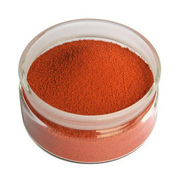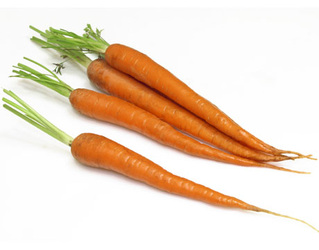Beta-carotene

Beta-carotene is a type of natural plant pigment found in fruits and vegetables. The hue of many colorful vegetables is present due to beta-carotene which provides a yellow or orange shade. The name beta-carotene is derived from the Latin name for carrot, however other rich sources are found in squash, tomatoes, peppers and sweet potatoes.
Color Hue
The body converts beta-carotene to vitamin A, which is necessary for good vision, healthy skin and a strong immune system. Beta-carotene is also an antioxidant which further lends to its reputation as a natural food coloring which has positive health benefits.
Often used in energy drinks, spirits, juice drinks, specialty teas, yogurt, smoothies, fruit preparations and salad dressing. According to the American Cancer Society, the recommended daily allowance of vitamin A is 2,310 IU (equivalent to 0.7 milligrams) each day for adult women and 3,000 IU (0.9 milligrams) per day for adult men. The top ten food sources of Beta-carotene are carrots, pumpkins, sweet potatoes, spinach, collards, kale, turnip greens, beet greens, winter squash and cabbage.
Color Hue
The body converts beta-carotene to vitamin A, which is necessary for good vision, healthy skin and a strong immune system. Beta-carotene is also an antioxidant which further lends to its reputation as a natural food coloring which has positive health benefits.
Often used in energy drinks, spirits, juice drinks, specialty teas, yogurt, smoothies, fruit preparations and salad dressing. According to the American Cancer Society, the recommended daily allowance of vitamin A is 2,310 IU (equivalent to 0.7 milligrams) each day for adult women and 3,000 IU (0.9 milligrams) per day for adult men. The top ten food sources of Beta-carotene are carrots, pumpkins, sweet potatoes, spinach, collards, kale, turnip greens, beet greens, winter squash and cabbage.









